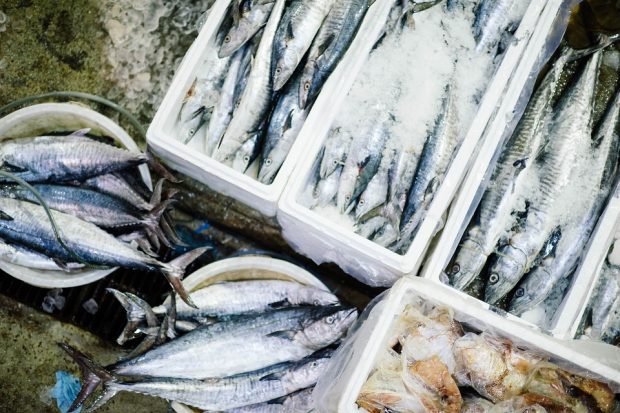
Exporting fish to the European Union
Written by Defra Press Office

There have been reports of some fish exporters facing disruption with exports to the EU. With both the UK and French systems to certify exports working, the government is in close contact with the industry to understand and address any issues they are experiencing.
There have been no issues with Export Health Certificate systems but to be sure exporters don’t encounter any problems or delays, as with any customs or export procedures, it will be well worth checking that all details have been entered correctly and ensure that the transporter of the goods has the correct documentation.
We have put in place a range of measures to ensure the industry is prepared to meet new export requirements. Defra and the Marine Management Organisation provided training, virtual workshops and webinars and regular advice and engagement with stakeholder groups on the requirements and how to use the systems to export fisheries products, alongside weekly bulletins and updates direct to fishing and seafood businesses.
Export Process
The EU has certain requirements for the importation of fisheries products. These include that imports of fisheries products are accompanied by a Catch Certificate, Export Health Certificate (EHC) and that the consignment is notified via the EU’s customs system TRACES and enters via a designated Border Control Post.
The simplest step to support is via a ‘one stop shop’ guide for commercial fishers, merchants and exporters. This covers the links to the administrative side of the fishing industry – signposting to business requirements needed for fishing, landing, exporting, importing, transportation, food hygiene, customs and regulatory controls.
The new free digital service to apply for catch certificates, processing and storage documents is open 24/7 and is supported by a telephone helpline also operating 24/7 to support the industry. The telephone helpline number is 0330 159 1989.
The requirement to apply for an Export Health Certificate via the Animal and Plant Health Agency (APHA) in Great Britain and needs to be signed off by a certifying officer, and dispatched from an approved premises. More information on this is available from local authorities and on GOV.UK. We have taken steps to ensure that there are sufficient certifying officers in place.
Certification of fish and fish products is mainly provided by Food Competent Certifying Officers (FCCOs), employed by Local Authorities. There are currently over a 1,000 FCCOs working across 153 local authorities in Great Britain. In November, we offered over £1m in grant funding to English coastal authorities expected to have the highest demand for EHC services.
From 1 January 2021, certification providers have been able to request temporary support from our GB-wide surge capacity to help meet increased demand for EHC services. Requests to this service are currently low, with zero requests from Local Authorities to date.
Support for industry
In 2020 ahead of the end of the transition period, Defra, the Marine Management Organisation, Seafish and the Devolved Administrations worked with the fishing and seafood sector to ensure they were aware of changes to exporting requirements.
Support from Defra and the MMO included virtual workshops and webinars on the process for Catch Certificates and Export Health Certificates, a regular e-bulletin direct to 2,500 fishers and seafood exporters, guidance to stakeholder organisations and articles in trade media covering the actions industry needed to take. This support continues into 2021 as industry becomes familiar with the new processes.
In December, we made calls to exporters to encourage uptake of the Fish Export Service, providing direct support on any issues.
We have updated the GOV.UK guidance on imports, exports and the Fish Export Service, and signposted to other departments’ information on customs requirements, Northern Ireland business guidance and food labelling. We have also provided more detailed guidance on exporting processes in the MMO’s ‘one stop shop’ guide.
A UK Government spokesperson said:
We are working closely with the industry to help understand and address the issues they are experiencing. The UK and French systems are working, but we are contacting exporters, their representatives and transporters to help them understand the requirements to keep their goods moving.
It is vital that exporters check they have entered in details correctly and ensure that they have provided the transporter of the goods with the correct documentation.
Continue reading on Defra Website...





